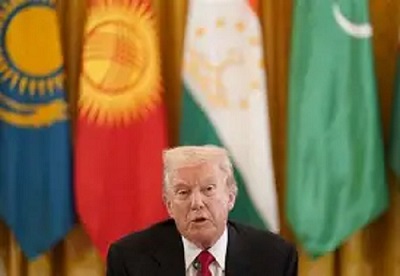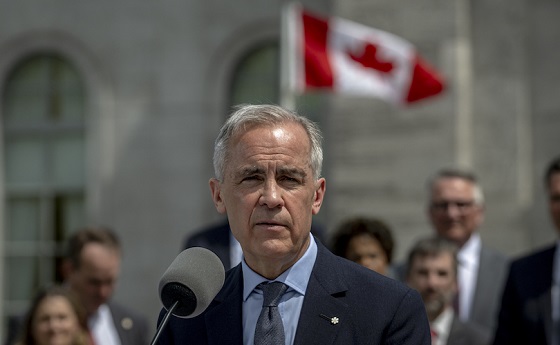Opinion
Canada’s fertility, marriage rates plummet to record lows: report

From LifeSiteNews
Canada’s fertility rate hit a record low of 1.33 children per woman in 2022, according to a recently released report by the Macdonald-Laurier Institute.
A recently released report from major Canadian think tank the Macdonald-Laurier Institute has painted a dire picture for Canada’s future, noting that the nation’s marriage and fertility rates are at extreme lows and have been on the steady decline for years.
According to the report, titled, “Decline and fall: Trends in family formation and fertility in Canada since 2001, the number of never-been-married Canadian adults has increased significantly since 2001, notably among those 45 years and younger.
The report notes that being in a single, unmarried state for those under 30 has become the norm and that because of a decline in marriage rates, Canada’s fertility rates have been impacted as well.
Also troubling is that amongst couples that do get married, many of them are choosing not to have kids, and those that do only have children only have one or two, which is not statistically sufficient in boosting Canada’s birth rate into positive territory.
The report released concerning findings relating to the decline of the traditional nuclear family, noting that the proportion of those aged 25-29 who “are in a couple dropped by 10.9 percentage points between 2001-2021.”
“Younger people are increasingly delaying marriage or common-law relationships into the late 30s or early 40s, with a growing fraction of people remaining single well into middle age,” notes the report.
Also, Canada’s fertility rate was only “1.3 in 2022, down from 1.6 in 2016,” it noted.
Canada’s fertility rate hit a record low of 1.33 children per woman in 2022. According to the data collected by Statistics Canada, this is the lowest fertility rate in the past century of record keeping. For context, in the same year, 97,211 Canadian babies were killed by abortion.
Instead of promoting marriage and child-bearing, the federal government of Prime Minister Justin Trudeau has instead resorted to using immigration to boost the population.
Governments should ‘worry’ about low birth rates
According to Dr. Tim Sargent, Deputy Executive Director of the Centre for the Study of Living Standards, as noted in the Macdonald-Laurier Institute report, “Governments have every reason to worry.”
“The most important step in addressing these problems is perhaps… to recognize that the declining family formation, dropping marriage rates, and deteriorating fertility are serious problems facing our society, and they should be a top priority for policymakers in our country,” noted Sargent.
The Macdonald-Laurier Institute noted that Canada needs to ensure that there are “policies that make housing more affordable, use the tax system to incentivize family growth and the raising of children, subsidize daycare, and address the rising problem of credentialism by finding ways to reduce the formal educational requirements for jobs will allow young people to marry, afford a house, and have children earlier.”
Some positives from the report note that in Canada, despite the fact of the current Liberal government, there are “incredible benefits, both in terms of income and broader well-being” by starting a family.
“Adjusting for economies of scale (recognizing that couples require only 1.5 the income of a single person to have the same standard of living) the average single 35-45-year-old has only 49.2 percent of the income of their coupled counterpart,” notes the report.
“Single parent homes have approximately 35-40 percent less income per family member relative to a two-parent family.”
The report observed that married couples have a “significantly lower incidence of, and better survival rates from both cancer and cardiovascular disease, are less stressed, and are less likely to suffer from depression and other emotional pathologies.”
As reported by LifeSiteNews earlier this month, a survey showed that more and more Canadians are delaying the start of families due to the rising cost of living.
Also, instead of embracing new and current life, as taught by the Catholic Church, Trudeau’s government has instead promoted abortion, contraception, and euthanasia.
As noted by LifeSiteNews contributor Jonathon Van Maren, a recent scheme by the Trudeau Liberals to offer free contraception to all Canadians, will only worsen Canada’s current demographic crisis.
“Canada, like any nation, needs babies. This is an obvious, undeniable fact. It is also a truth that few seem capable of uttering,” wrote Van Maren.
“Justin Trudeau is passionate about abortion, and his government is one of the most aggressive proponents of feticide in the world. Canada’s taxpayers fund the killing of the very children we desperately need.”
International
Kazakhstan joins Abraham Accords, Trump says more nations lining up for peace

Kazakhstan is officially joining the Abraham Accords, becoming the first nation to do so during President Trump’s second term — and signaling a renewed push for peace and stability across the Middle East and Central Asia. Trump made the announcement Thursday on Truth Social, writing, “I just held a great call between Prime Minister Benjamin Netanyahu, of Israel, and President Kassym-Jomart Tokayev, of Kazakhstan. Kazakhstan is the first Country of my Second Term to join the Abraham Accords, the first of many.” He continued, “This is a major step forward in building bridges across the World. Today, more Nations are lining up to embrace Peace and Prosperity through my Abraham Accords. We will soon announce a Signing Ceremony to make it official, and there are many more Countries trying to join this club of STRENGTH. So much more to come in uniting Countries for Stability and Growth — Real progress, real results. BLESSED ARE THE PEACEMAKERS!”
Secretary of State Marco Rubio echoed the announcement, calling Trump “the world’s ultimate negotiator.” Rubio said in a post that “the American people have the ultimate advocate and champion for peace in @realDonaldTrump,” adding that Kazakhstan’s entry “builds on President Trump’s unmatched record of delivering results.” The move represents a significant diplomatic step for Kazakhstan, a Muslim-majority nation that has long sought to balance relations between Russia, China, and the West while maintaining economic ties with Israel and the United States.
According to senior adviser Steve Witkoff, the agreement could be just the start of another wave of normalization. Witkoff told Breitbart News there is “big energy” behind four to six additional countries joining “in the next couple of months,” pointing to Lebanon, Syria, Libya, Armenia, and Azerbaijan as likely candidates. Former Arkansas Governor and U.S. Ambassador to Israel Mike Huckabee similarly suggested during a Breitbart Founders Club Roundtable that Saudi Arabia remains the most consequential prospective addition. Huckabee highlighted the United Arab Emirates’ economic transformation since joining the Accords as an example of the tangible benefits for participating nations.
Rubio has also met with Syrian interim President Ahmed al-Sharaa, who expressed interest in lifting sanctions to attract foreign investment. While al-Sharaa acknowledged that joining the Abraham Accords may not yet be realistic for Syria given tensions with Israel, he signaled openness to long-term normalization under the right conditions.
Trump, who returned to office in January, vowed throughout his campaign and transition to expand the Abraham Accords beyond their original signatories — Israel, the UAE, Bahrain, Morocco, and Sudan — and hinted earlier this year at progress with Saudi Arabia. “They’ll join in their own time,” he told business leaders at the 2025 Saudi-U.S. Investment Forum. Saudi Crown Prince Mohammed bin Salman is scheduled to visit Washington on November 18, while al-Sharaa is expected to arrive next week for meetings at the White House.
The original Abraham Accords, signed in September 2020, reshaped diplomatic relations in the Middle East under Trump’s first term. With Kazakhstan now on board and more nations signaling interest, Trump’s second-term foreign policy is again centering on a message of peace through strength — and a vision of an American-led era of regional cooperation grounded in security, prosperity, and faith.
Business
Carney’s Deficit Numbers Deserve Scrutiny After Trudeau’s Forecasting Failures

From the Frontier Centre for Public Policy
By Conrad Eder
Frontier Centre for Public Policy study reveals a decade of inflated Liberal forecasts—a track record that casts a long shadow over Carney’s first budget
The Frontier Centre for Public Policy has released a major new study revealing that the Trudeau government’s federal budget forecasts from 2016 to 2025 were consistently inaccurate and biased — a record that casts serious doubt on the projections in Prime Minister Mark Carney’s first budget.
Carney’s 2025–26 federal budget forecasts a $78.3-billion deficit — twice the size projected last year and four times what was forecast in Budget 2022. But if recent history is any guide, Canadians have good reason to question whether even this ballooning deficit reflects fiscal reality.
The 4,000-word study, Measuring Federal Budgetary Balance Forecasting Accuracy and Bias, by Frontier Centre policy analyst Conrad Eder, finds that forecast accuracy collapsed after the Trudeau government took office:
- Current-year forecasts were off by an average of $22.9 billion, or one per cent of GDP.
- Four-year forecasts missed the mark by an average of $94.4 billion, or four per cent of GDP.
- Long-term projections consistently overstated Canada’s fiscal health, showing a clear optimism bias.
Eder’s analysis shows that every three- and four-year forecast under Trudeau predicted a stronger financial position than what actually occurred, masking the true scale of deficits and debt accumulation. The study concludes that this reflects a systemic optimism bias, likely rooted in political incentives: short-term optics with no regard to long-term consequences.
“With Prime Minister Carney now setting Canada’s fiscal direction, it’s critical to assess his projections in light of this track record,” said Eder. “The pattern of bias and inaccuracy under previous Liberal governments gives reason to doubt the credibility of claims that deficits will shrink over time. Canadians deserve fiscal forecasts that are credible and transparent — not political messaging disguised as economic planning.”
The study warns that persistent optimism bias erodes fiscal accountability, weakens public trust and limits citizens’ ability to hold government to account — a threat to both economic sustainability and democratic transparency.
-

 Justice1 day ago
Justice1 day agoCarney government lets Supreme Court decision stand despite outrage over child porn ruling
-

 Business1 day ago
Business1 day agoCarney’s budget spares tax status of Canadian churches, pro-life groups after backlash
-

 COVID-191 day ago
COVID-191 day agoFreedom Convoy leader Tamara Lich to appeal her recent conviction
-

 Daily Caller2 days ago
Daily Caller2 days agoUS Eating Canada’s Lunch While Liberals Stall – Trump Admin Announces Record-Shattering Energy Report
-

 Business2 days ago
Business2 days agoThe Liberal budget is a massive FAILURE: Former Liberal Cabinet Member Dan McTeague
-

 Daily Caller1 day ago
Daily Caller1 day agoUN Chief Rages Against Dying Of Climate Alarm Light
-

 Business2 days ago
Business2 days agoPulling back the curtain on the Carney government’s first budget
-

 Energy2 days ago
Energy2 days agoEby should put up, shut up, or pay up










